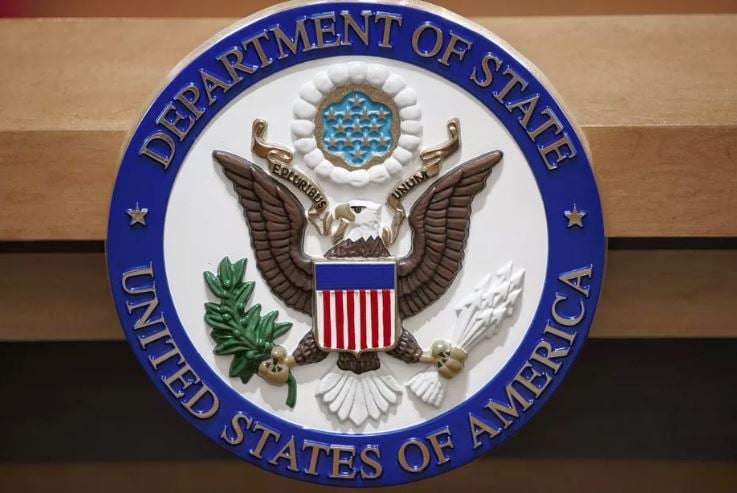US expresses concerns over social media restrictions in Pakistan
Unfortunate if Pakistan discourages foreign investors and stifles domestic innovation in such a dynamic sector, tweets State Department
The United States expressed concerns on Tuesday over a new Pakistani law that makes it compulsory for social media platforms to register, open offices in the country. The State Department said the move "could be setback to freedom of expression & development of digital economy."
"New restrictions on social media platforms in #Pakistan could be setback to freedom of expression & development of digital econ. Unfortunate if Pakistan discourages foreign investors & stifles domestic innovation in such a dynamic sector. Encourage discussion w/ stakeholders. AGW," read a tweet from the US State Department.
The statement from Washington comes a few weeks after the cabinet gave the green signal to a new law that requires social media platforms to register, open offices in Pakistan and provide data of accounts found to be involved in various crimes to intelligence agencies and security institutions.
While the government says that the law has been introduced for the benefit of social media platforms and that it is necessary to regulate digital media platforms, proponents of internet freedom worry the law may be used to stifle freedom of expression.
What is the new law all about?
The law requires social media giants such as Facebook, Twitter, YouTube, TikTok and others to build data servers in Pakistan, get registered and appoint a representative who will deal with a government-constituted authority in Pakistan.
Under the new law, social media companies will have to set up data servers in Pakistan within a year and will have to provide data of accounts found guilty of various crimes — including targeting state institutions, spreading fake news and hate speech, engaging in harassment, issuing statements that harm national security or uploading blasphemous content — to intelligence and law enforcement agencies (LEAs).
It will be the authority's prerogative to identify objectionable content to the social media platforms to be taken down. In case of failure to comply within 15 days, it will have the power to suspend digital media companies' services or impose a fine worth up to Rs500 million.
Special Assistant to the Prime Minister on Information and Broadcasting, Dr Firdous Ashiq Awan had confirmed that an authority will be regulating social media companies, saying that it was not possible for the government to leave digital media companies completely unregulated.
"We cannot leave these websites completely unregulated," she had said. "These laws have been made to facilitate social media."
Proponents of Internet freedom worry that the legal document would be used to keep social media companies in check.
-
Security forces gun down 30 terrorists in multiple IBOs in KP: ISPR
-
MQM-P calls for new province in Sindh
-
US report validates Pakistan military edge over India: PM
-
Banned TTP poses serious threat to Pakistan security: UNSC panel
-
CM Afridi clarifies remarks on by-poll after ECP requests army deployment
-
Dubai sees 3.2m Pakistani passengers in 2025 as airport sets new milestone
-
Security forces kill 23 Indian proxy terrorists in KP's Kurram
-
Pakistan to construct island to boost oil exploration: report












